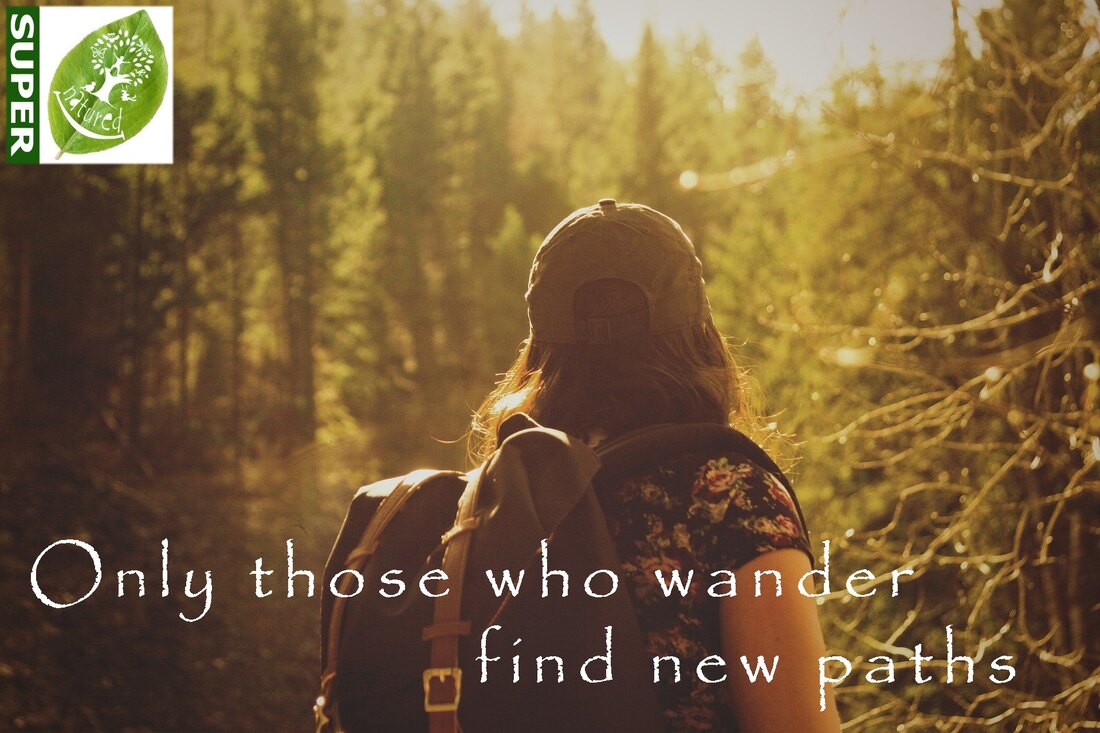A story of hope: People, Nature and Coronavirus? As 'Seed packets’ become the new ‘bog rolls’!25/5/2020 Even though this has been one of the most challenging times in many of our lives, I’m really excited to see if one benefit ‘sticks.’
Will we hold on to some of the new things we’ve found as we return to ‘what we consider’ is normality? As lockdown restrictions lift, people return to work and their livelihoods. Moments in recent months have brought me so much joy and hope for the future. Before the lockdown, only 21% of children regularly played outdoors. This has significantly altered since March. I've seen so many children being shown how to ride a bike, even older children tentatively schooled by friends or a parent, at eight, nine years old, even into their early teens. Lots of adults too, appear to be rediscovering cycling skills learnt a long-time ago. I’ve heard the squeals of delight, discussions and amazement on children and even some parents faces, as they follow other people, to take off their immaculate, ‘on trend’ trainers to squish their bare feet into the sand for the first time on New Brighton beach. A small contingent, fighting with their fear to go even further and paddle in the water’s edge, on a hot and sunny day (after many years of being given the impression that the sea was too ‘dirty’). On that day in late April the air seemed cleaner, and sky clearer than any I could remember. Even light blue tones and a distinct smell in the air took me back to the happy summers of my childhood (in the seventies), when I used to roam the fields. Many of my friends from the South West remarked after the first two months of the lockdown, that they were missing their favourite beaches, days on Dartmoor and regular riverside walks in Dorset. The places they’d always gone to “fill up their happy tank.” Maybe it’s only when we lose something, that we realise how special it is, and how great it made us feel? As far as human health is concerned, many things that feel good, feel good because they really do bring physical and mental benefits, we just don’t realise it and many benefits aren't widely acknowledged. Often our conditioning and education have led us to believe that many things aren’t good for us, like playing in mud, walking in the rain, walking outside in our bare feet, even bathing in the sunshine. These are just a fraction of the activities in nature that can bring significant benefits to our health and wellbeing. It's a good job the sun has been shining so much during the lockdown. Even just a little exposure during daily exercise will have made a huge difference to many people's mental and physical health. Children of all ages are discovering things for first time; the simple pleasure of blowing a dandelion head, climbing a tree, making daisy chains, rolling down grassy hills, ‘being in the moment’ as they watch a butterfly or bumblebee, unrushed, with a new awe. On one of my own regular walks, I overheard (from more than 2 metres) lots of people asking others in their group what type of birds they'd seen and heard, as the tide retreated, with Oystercatchers and other waders feeding on the rich shellfish beds of the Irish Sea. Some of us were ‘fortunate‘ to have been introduced to nature at an early age, immersed in it, allowed to roam free and many people shared their love and knowledge of nature with us. Unfortunately, for lots of children, their parents, even grandparents, many growing up in our towns and cities, even villages in our ‘rural idle’ (places that have become little more than a commuter zone) have become disconnected with nature. Our fields, moors, rivers and downs have increasingly become an ‘alien’ environment. A RSPB study in 2013, found that 4 out of 5 children were 'not connected with nature'. In 2017, research found that 7 out of 10 adults felt they were loosing touch with nature, 13% said they had not even been to the countryside for more than two years. A quarter could not say for sure they had ever seen a blue tit, and a fifth did not know that a red kite was a bird. The countryside has become ‘scary place’ where we are rarely encouraged to explore, by government or the media – in any co-ordinated, systemic, meaningful way to generate better widespread health or wellbeing. Society has changed so much over the last 30 years, enticed by the promise of immediate gratification, we’re encouraged to buy something new, soak up another box set, play on-line ‘virtual’ games with friends or strangers, compare ourselves with others based on how often we go out to eat, the number of 'likes' on a social media post, to the most foreign holidays taken each year. Although the last is now reducing in popularity, as an increasingly number of people see it as a irresponsible and flagrant act, in terms of individual carbon impact. In days gone by, when society wasn’t as mobile, we were more connected with nature and the community around us, a bigger part of a ‘smaller’ world. People knew most animals and birds they saw. Some of us have experienced this again during lockdown, we've benefitted from connecting with more local people, delivering groceries to neighbours, making new friends and reacquainting ourselves with local nature. THANKS TO THE CORONAVIRUS SITUATION, I believe a huge number of people have pushed beyond their comfort zone, 'broken out' of long held routines to explore the natural world and green spaces on their doorstep. Particularly as they have taken daily exercise seriously as an important opportunity to get outside nearly every day. New places, watching nature and activities outdoors have made us feel great, bringing HAPPINESS at a time of worry and stress. Outdoor adventures spent bonding with our nearest and dearest, to quiet individual reflection in natural settings. I’ve met, waved and smiled at so many people who live in my community, met neighbours where I live (feeling more connected) as I finally try out the footpaths and bridleways around my home. Nearly everyone I meet is smiling! An unprecendented number of people appear to be on a similar voyage of discovery, without much of the 'traditional' kit which might symbolise a long held confidence, familiarity or regularity of getting outdoors. A silver lining that we’ve all been forced to explore and find ‘the special’ natural assets on our doorstep? Rather than that regular weekend car ride to our favourite beauty spot or National Trust Garden. Having the opportunity (without the commute) to dedicate more time to walk to my local bluebell woods, I’ve tentatively explored things I can pick to eat and cook. Stuff that my grandmothers generation took as standard, as they turned healthy nettles into soups (cooked properly it really does taste just like spinach - just many more benefits), added a few dandelions to salads to get some extra vitamin C, or boiled up rosehips with sugar in the autumn. The cure all ‘a spoonful of sugar’ my nan often gave me during winter months, saying it would ' pep me up, and keep a cold at bay.’ Others appear to be doing the same, as we are taking more time to deepen our connection and interest in the natural world around us. Each ‘eat weeds', 'wild foraging' and ‘nature kitchen’ enthusiast I’ve visited online has been remarking on the dramatic increase in the number of followers. So many people looking for advice on how to get started. Similarly, the interest in gardening and ‘grow your own’ has sky rocketed in recent weeks – ‘packets of so many vegetables and herb seeds’ SOLD OUT nearly as soon as the garden centres opened, quickly becoming the latest ‘bog roll’ phenomena, two months later! MY DEEPEST HOPE AND WISH FOR THE FUTURE – is that those that have newly discovered or extended their pleasures in engaging with nature WON’T slip back into old patterns, but make room for these new activities as permanent, valued fixtures in their lives. Be it the daily walk, cycle, watching wildlife or foraging for a 'wilder' dinner. All of us can benefit from MORE nature in our lives. We’re all part of nature (some of us just got a little too busy or forgot our DNA connection for a while, but it doesn't take that long to reconnect). Best wishes, Roger@supernatured,org,uk Info. & background 1. Just a fraction of the huge range of FREE benefits nature can bring us, physically, mentally, to strengthen a sense of community or generate a greater compassion for the natural world can be found at www.supernatured.org.uk/ 2. We are updating this at the moment to include - benefits of gardening, essential benefits of staying active outdoors for those living with dementia, integrating more nature in your work environment, reasons for being around trees and so, so much more… 3. With any simple search on the internet you can discover a huge range of benefits you never knew NATURE could provide! At the moment many of us are discovering what Scientists have known for a while, that placing one foot in front of the other outdoors each day leads to some seriously impressive mental and physical benefits.
The Physical Benefits of Walking There are many reasons to walk for exercise, walking improves fitness, cardiac health, alleviates depression and fatigue, improves mood, creates less stress on joints and reduces pain, can prevent weight gain, reduce risk for cancer and chronic disease, improve endurance, circulation, and posture, and the list goes on… When comparing the results of the most recent Runners and Walkers Studies, researchers found that the energy used for moderate-intensity walking and vigorous-intensity running resulted in similar reductions in risk for high blood pressure, high cholesterol, diabetes and heart disease over a six year period. This means when it comes to some pretty prominent markers of our health, walking at a moderate intensity can get the job done just as well as running, as long as you’re expending the same amount of energy. Great news for those of us that dread going on a jog. Many studies have supported this notion, finding that a daily walk can reduce the risk of stroke in both men and women, reduce the days spent in a hospital each year and can even lower your risk of death by up to 39 percent (when compared with no leisure-time physical activity). A study published in the British Journal of Sports Medicine found that those who adhered to a walking program showed significant improvements in blood pressure, slowing of resting heart rate, reduction of body fat and body weight, reduced cholesterol, improved depression scores with better quality of life and increased measures of endurance. The Mental Benefits of Walking While the physical benefits are notable, the mental boost that can be gleaned from adding a walk to your daily routine may be more immediate. One Stanford University study found that walking increased creative output by an average of 60 percent. Researchers labelled this type of creativity “divergent thinking,” which they define as a thought process used to generate creative ideas by exploring many possible solutions. According to the study, “walking opens up the free flow of ideas, and it is a simple and robust solution to the goals of increasing creativity and increasing physical activity.” Psychologists found that a 10-minute walk may be just as good as a 45-minute workout when it comes to relieving the symptoms of anxiety. Which makes sense, since science shows that engaging in activities that allow our minds to wander promotes a mental state conducive to innovative ideas and “ah-ha!” moments. But it’s not only your creativity that will benefit from the mental lift. The act of walking is also a proven mood booster. One study found that just 12 minutes of walking resulted in an increase in joviality, vigor, attentiveness and self-confidence versus the same time spent sitting. Even better in NATURE Walking in nature, specifically, is found to reduce ruminating over negative experiences, which increases activity in the brain associated with negative emotions and raises risk of depression. Researchers in Japan also found that a walk in nature changes blood flow in the brain to a state of relaxation, increasing the number of natural killer cells the body produces to battle infection. So how does it work? Our brain gently registers things like the wind in leaves and the sound of the waves to revitalise our fatigued mind. Phytoncides, the olfactory-provoking chemicals that trees naturally secrete, can also reduce stress hormones. They can be cancer-protective: so the more walks in woodland could lower the rates of lung, breast, uterine, prostate, kidney and colon cancers. Walking has also been shown to improve memory and prevent the deterioration of brain tissue as we age. Plus, psychologists studying how exercise relieves anxiety and depression also suggest that a 10-minute walk may be just as good as a 45-minute workout when it comes to relieving the symptoms of anxiety and boosting mood. Motivation to keep going Not all of us find it easy to stay motivated to go out for a walk on our own. Some people enjoy the sociable aspect of being part of a walking group. It’s a great way to meet like minded people whilst getting active. Joining a group can also keep you motivated as you will not want to miss out on the fun or meeting up with new friends you’ve made. It may also help you get to know your area. When the restrictions are lifted, why not join or look to set up your own local group - Ramblers have the 'Walking for health' programme which can provide training and insurance to help individuals and organisations run health walks. |
help more people get nature
|




 RSS Feed
RSS Feed